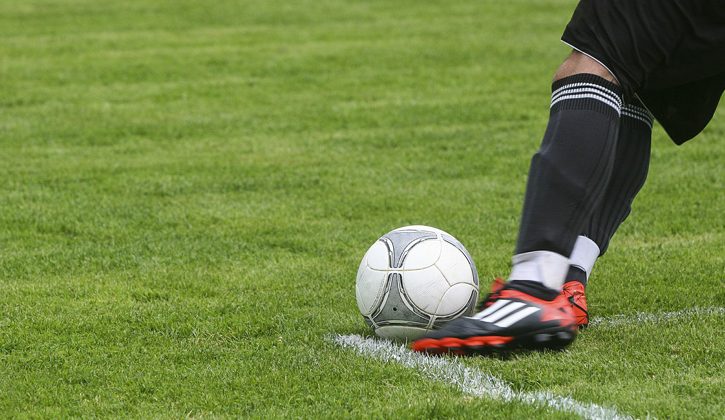Common Football Injuries

Football is the most popular sport played in England. It’s watched regularly, and played in a variety of different leagues and levels. In my experience what I’ve found with the likelihood of injury, is dependant on the level of play. The lower the league, the higher the rate of acute injury. In fact, in speaking with multiple clubs in the past, a lot of the lower league teams have more injured players than uninjured!
As a Sports therapist working in Southend and surrounding areas, I can only base my knowledge on what I’ve seen and treated in this particular area. With more injuries at lower leagues, it’s often actually trauma that leads to players being unable to play; heels to the side of a players leg, running into one another, even on one occasion a player running into a goal post!. The higher up the league I travel, the more overuse injuries or tight muscles I find. This is more than likely due to skill set and more risky tackles at lower levels of play that contributes to the higher acute problems.
With players having more experience, control over their body and a better team around them, both for and against, it would make sense that there are less acute injuries, but more overuse and tightnesses. Tight hamstrings are common from any football player in fairness, but pain in the groin, Achilles tenderness, knee twinges these are much more prevalent in the higher leagues.
With the traumatic injuries there aren’t really ways to avoid them completely, albeit football is categorised as non-contact..! The only thing I could really recommend is to be aware of your surroundings at all times. If you see an opponent approaching you fast, adapt and react. To take them head on will only end badly, and in some cases can lead to crutches. Hamstring tightness among other areas just needs a bit more warming up, and an exercise routing through the week involving a good range of movement. Even 15 minutes every 2 days spent stretching would make a big difference.
In higher league players, I would hope there is more structure to the training, allowing for a good warm up, cool down and everything in between, but unfortunately some players will never miss a game as well as the training which can lead to overuse injuries. Two of the most popular injuries in football players are twisted ankles, which almost goes without saying, and something called Gilmore’s Groin.
Ankle twists of course come simply from turning rapidly on uneven surfaces, possible tackles to the inside of the foot, or even just jogging along and not spotting a dip in the grass. It’s very easily done. The thing to remember is to NOT FORGET that it happened, and address it later on or if severe, address right away. Whether that be ice, resting or visiting a therapist be sure not to ignore it. If it happens often then you have to consider why it’s doing so, and address the problem. If you can’t find the problem I’d really recommend speaking to a professional so you can fix the constant injuries and improve your performance all at once.
Gilmore’s groin, or a sports hernia more commonly known, is found in a very specific area in your external oblique, and where that muscle meets into a ligament across your pelvis. If diagnosed correctly it can mean surgery, which shows a 96% success rate of return to sport pain free. If it’s undiagnosed and ignored it can only get worse, and to a point where you are physically unable to play sport due to the pain. What you need to know if you do have ongoing groin pain with no onset, is that getting a diagnosis is vital. Once you know the problem, a solution can be put in place.
As always, just a call away for any queries. I hope none of you suffer with any of the above, but if so, don’t go on living with them. If there’s a problem there’s a solution!
For more advice, please call The Body Matters on 01702 714968 to book an appointment with a sports therapist.
- What’s Your Weakness? - 7th February 2019
- Taping and Strapping Vlog – How does Kinesiology tape work? - 26th October 2018
- Are Regular Treatments Worth It? - 14th September 2018
